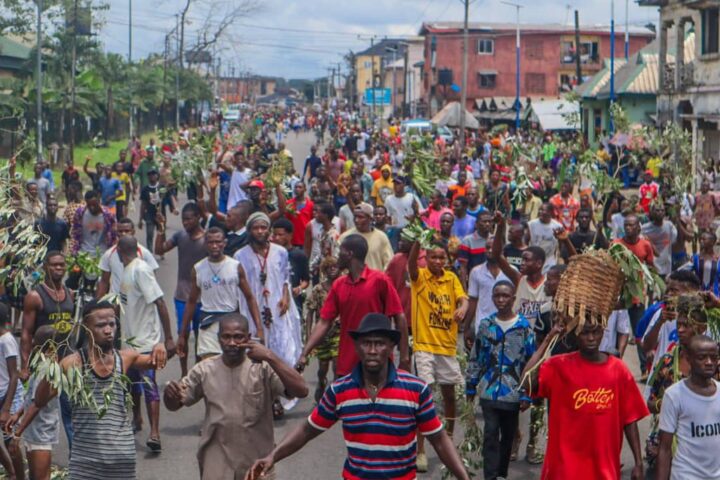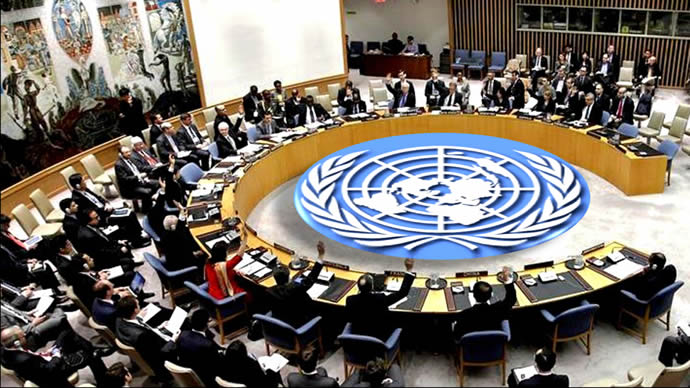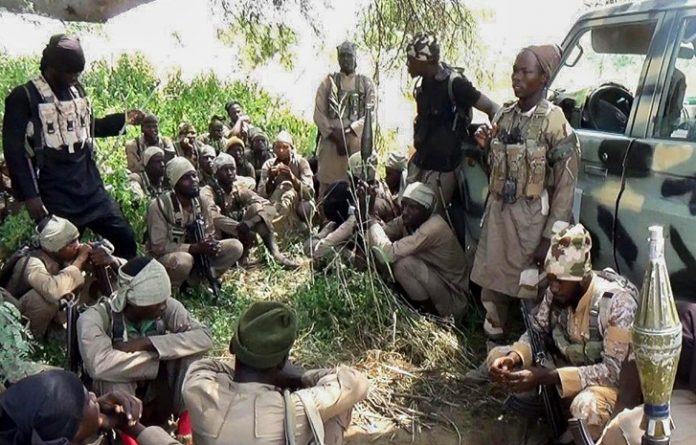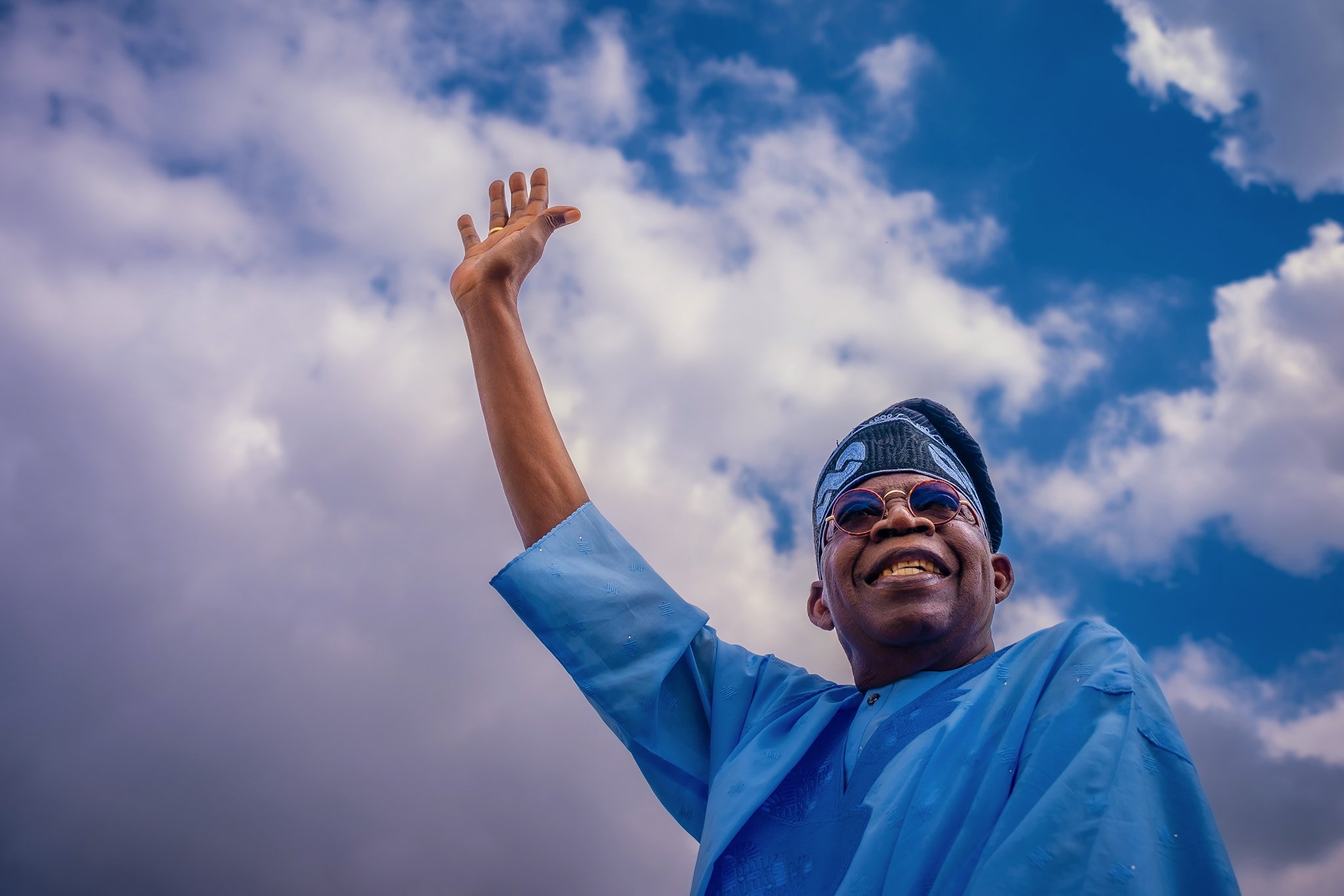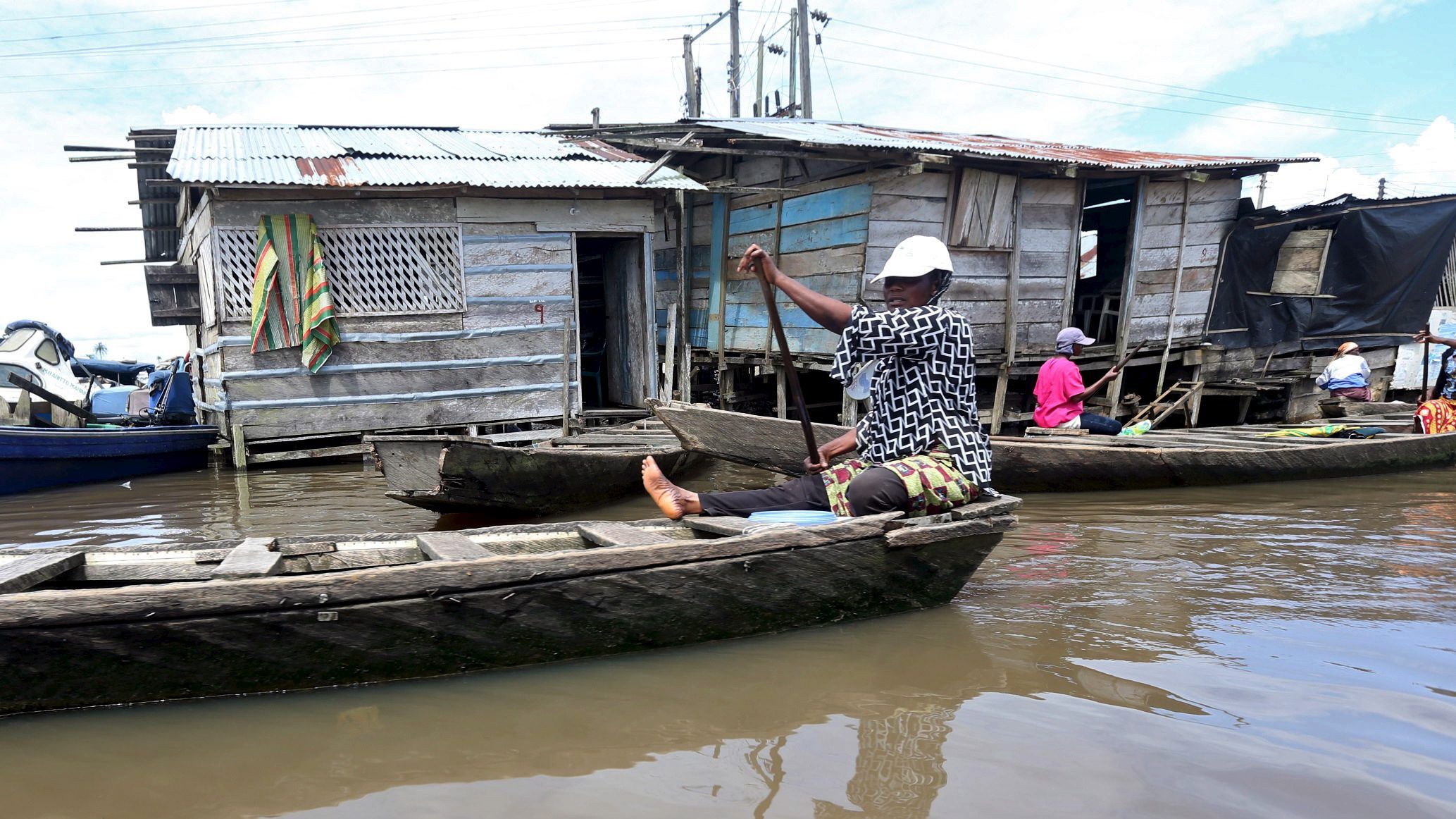Protest against economic hardship in Rivers
Nigerians and indeed, the world, watched aghast last week as a South African grisly movie reel began to roll. Full of all the elements of a movie, it was however a real story. The cast was two black women who, on August 17, were shot and fed to pigs by a white farmer. The victims, Maria Makgato, 45 and Lucia Ndlovu, 34 were scavenging for edible food in consignments of recently expired or soon-to-be-expired produce on a farm located near Polokwane, a South African northern Limpopo province. The expired edible foods were meant for pigs.
Before her gruesome murder, Makgato was the mother of four sons of between 22 and five years old. Farm owner, Zachariah Johannes Olivier, 60, had reportedly ordered his employees, Adrian de Wet, 19, and William Musora, 50, to kill the two women. Their bodies were then fed to pigs, in order to destroy evidence of their murder. Ms Ndlovu’s husband, Mabutho Ncube, who came to the farm with his wife, had been shot too but crawled into safety with his gunshot wounds. Several days later, police found decomposing, horrific bodies of the women in the farm’s pigsty, partly eaten up by the swine.
In South Africa, farming communities are severally under attacks by white farmers, exacerbating an already high crime statistics in the country. This is especially rife in rural areas, despite the official cessation of the obnoxious racist system of apartheid 30 years ago. In the same August, in the eastern province of Mpumalanga, two men – a farmer and his security guard – were arrested in Laersdrift, located beside a small South African town called Middleburg, for allegedly murdering two men on a farm. Accused of stealing sheep, the men were incinerated beyond recognition. The court had to subject their ashes to DNA analysis to be able to establish their identities. In the same vein, a 70-year-old white farmer, Christoffel Stoman, of Lutzville, a Western Cape province, had allegedly driven over and broken the two legs of a 6-year-old boy for picking a fallen orange on his farm. The boy’s mother, walking with him past Stoman’s farm, on their way to town to purchase groceries, was horrified as her son got mowed down by Stoman.
As they watch this grisly movie, like the rest of the world, Nigerians are entitled to their shock. However, literally and figuratively, on the social and political planes, our country can be said to be grappling with leaders of similar sadism as South Africa’s Oliviers. Almost on a daily basis, Nigerians’ bodies are figuratively fed to swine, simply because they pick expired pig foods from our collective farm.
Advertisement
Nigerian leadership in the last seventeen months, like Olivier, has figuratively thrown Nigerians’ bodies to the swine who now take turns to feast on our flesh for supper. Nigerians are writhing under excruciating poverty occasioned by wickedness in high places. They encounter limited vision and foresight of leaders who claimed it was their time to rule but who have no time to think through the people’s plights. Perhaps the greatest Olivier-like savagery inflicted on Nigerians is the gradual destruction and undermining of the foundation of democracy by the born-to-rule taskmasters. In almost 17 months, all the institutions of democracy, like the electoral system, free press/speech and impartial judicial system have been dealt mortal blows. This speaks to that eternal aphorism that democracies are not killed by guns but by wicked undermining of its foundation.
If Nigerians are so distressed about the misrule in their country today, unfortunately, they are in a Catch-24 situation. We are locked up in a paradoxical situation from which, except an intervention of providence, we may never escape. As Sule Lamido warned recently, if the Leviathan in Aso Rock didn’t control the senate, the Nigerian Army, Nigerian police, DSS etc and yet won the 2023 election, it is wishful thinking that anyone can stop the reproduction of this misrule in 2027. The ones at the top today have worn upon them the classical head of the Medusa. In real terms, like the sobriquet of one of the friends of Ayinla Omowura, an Abeokuta musical warlord of the 1970s, they are reincarnates of Ab’esuj’obi – one who shares kolanut with the devil.
According to the playbook of democracy, opposition deepens democracy. In Nigeria, the Leviathan has effectively castrated opposition. And this is why we should all be bothered. It is a Lagos model given federal promotion. The Leviathan then dipped his hands into his wiles pouch. From there, he brought out a colony of termites, led by a choleric dictator who is seeking political vengeance in his home state. His main assignment was to gradually corrode virtually all the internal strength of the PDP. I will not be shocked if the Leviathan is also the sponsor of the crisis in the Labour Party as well. Like a colony of pests called termites, Aso Rock and Nyesom Wike have visited on our country, using Rivers state as model, one of the most debilitating democratic devastations ever in history. This means that, whatever tyranny and limited vision leadership which Nigerians complain of today has a longer expiry period than they may think. We should all buckle up for a marathon. It is a distressing reality.
Advertisement
What happened in Edo state last month, coupled with the lawlessness that has eaten up Rivers state today, are clear signals that the electoral, judicial and police institutions have been ambushed. In broad daylight, with the obvious abetment of the Villa, electoral process was cavalierly thrown to the swine. The animals in turn mauled it with maniacal relish. It was obvious that Mahmood Yakubu’s INEC didn’t have any qualm licking the pus-dripping wound of the Leviathan and his accomplices.
With wanton abuse of electoral rules by INEC, advocacy for the abrogation of state electoral commissions for being lapels of state governors will not make any sense. From what is going on in Rivers today, any INEC-conducted state election will automatically be a from-frying-pan-to-fire situation. We will obviously be substituting local state despots for Abuja despots. In all, INEC’s Edo sham election hasn’t shown that the commission is the solution to governors’ brazen perversion of democracy. Kayode Egbetokun stands smilingly on the fringe to offer autocracy and totalitarian rule a pillow for comfort and the judiciary a final seal.
The second prong from which to look at this pig-food relationship is ethnic relations in Nigeria. As it stands, in the last nine years or thereabout, ethnic tensions here have ratcheted up so frighteningly, just like among black and white people of South Africa. When you read posts on social media, especially from both Yoruba and Igbo, a tingling feeling of foreboding will creep up your nerves. Of a truth, there is a subsisting history of almost a quarter century-old hatred ramped up between the two ethnicities. However, between 2015 and now, a heavy salvo has been unleashed on the relations between the two ethnicities, so much so that if there is any slight prick, the bubble will burst finally.
The most incalculable salvo, more devastating than the machine guns of the civil war, was smashed on ethnic relations in Nigeria by Muhammadu Buhari’s eight-year rule. In my piece of May 26, 2019 with the title, Who will be Nigeria’s last president?, I argued that, by the time Buhari exited Aso Rock, there might be no Nigeria as handed over to him. My hunch was based on Buhari’s ultra-ethnocentric rule. That playbook is being revamped today. All the cement and glue that made a united Nigeria have practically been deliberately peeled off or worn out. Ethnic tensions are at a frighteningly high level, reminding one of the 1994 Rwandan genocide. Buhari, on national TV, once referred to the Igbo as a “tiny dot in a circle.” It was not different from the pre-fixing of the word “cockroach” by Hutus against the Tutsi. Both depicted a negligible, expendable ethnicity. While in Rwanda, it inflamed passion and expedited genocide, in Nigeria, it bred resistance. Buhari then prosecuted this hate agenda with clinical finish, so much that, by the time he left office, ethnic relations between the east and other ethnicities landed on the borderline.
Advertisement
Curiously and seemingly illogically, since this current government assumed office, Yoruba and Igbo, who were united by their mutual pummeling by Buhari, have squared up to themselves in a needless ethnic animosity similar to the escalation of war between Israel and Palestine. The Leviathan has done little or nothing to quell the inflamed passion and escalation of distrust between them. The hatreds are bereft of logic, scarcely backed by history and are mere whimsical carry-overs of political antagonisms. Why would a people who have similar histories, struggles and challenges in the hands of their mutual oppressors, hate each other this much?
It is so bad that, if one of the two ethnic stocks, like Maria Makgato and Lucia Ndlovu did, goes rummaging for edible food in the other’s compound, just as Olivier’s maniacal identity profiling of South African blacks, one will feed the other’s flesh to their pigs. Sometimes when I read very acidic but senselessly divisive posts from both sides on social media, not only do I shudder, I wonder whether the writers were same offspring of leaders like Michael Okpara and Mama HID Awolowo/Alhaji Dauda Soroye Adegbenro? In 1964, both camps, leaders of two erstwhile politically irreconcilable parties – the National Council of Nigerian Citizens (NCNC) and Action Group (AG) – came together to form the United Progressive Grand Alliance (UPGA) and campaigned round Ibadan during Okpara’s visit. By then, Chief Obafemi Awolowo was locked up in the Calabar prisons by the Igbo/Yoruba common enemies.
In closing, the story of Hastings Kamuzu Banda’s government in Malawi will tell us not to take for granted the danger of a one-party state growing on the Nigerian soil. Banda’s was an extensive cult of personality. He ordered all business buildings to hang his official picture on walls. Today, a particular cap of specific branding is worn by all top officers in Nigeria today, including Villaswill Akpabio, a man who should ordinarily be at the head of checks on the excesses of the executive. Banda brooked no poster, clock or picture hung on the wall that was higher than his portrait. It was a criminal offence.
Whenever any film was aired in Malawi, a video of Banda waving to the people must be mandatorily shown. Same happened whenever Malawian national anthem was played. If Banda paid a visit to any Malawi city, a group of women were mandatorily expected to salute him at the airport and wag their buttocks erotically to prep up the leader’s voyeur instinct. The performances were also accompanied with special clothes that had Banda’s picture on them. He banned faiths like Jehovah’s Witnesses permanently from Malawi while other houses of worship were mandated to get his government’s approval before preaching.
Advertisement
One major blood-dripping hallmark of Banda’s one-party state despotism happened in 1983. Three ministers in his government, Aaron Gadama, Dick Matenje, Twaibu Sangala and a member of parliament, David Chiwanga, were suddenly found dead. At a meeting with Banda, they voiced their support for a migration from Banda’s one-party state to multi-partyism. They told him to his face that he should perish the thought of a life presidency. Not only did Banda dissolve cabinet immediately, he stripped all members of their status and ordered the three men to be rounded up. They were also tortured and bundled into a Peugeot 604 belonging to Matenje. An accident was then staged for them with their car overturned. It was later discovered that they had been murdered with tent pins which were hammered into their heads. During their burial, Banda ordered that their caskets must not be opened for public viewing. They were subsequently buried at night.
If we think the above is impossible in Nigeria, we should just keep an eye on what is going on in Rivers state. Hours to the state council election, the situation escalated into an embarrassing exchange of allegations between Egbetokun and Governor Similayi Fubara. That is democracy under the Leviathan. We must know that autocracy creeps in harmlessly, just the way music furtively slides into its listener’s consciousness. Of this, Bob Marley once sang, “one good thing about music – when it hits, you feel no pain.” There is a progressive shrinking of the civic space and its replacement with democratic stifling. Wike has suddenly become so powerful that every democratic institution – INEC, judiciary or police – is hidden under his Isiagu clothes. He arrogantly boasts, in inebriated gutturals, that he is the custodian of fire and he can set ablaze any state at his whim. The Leviathan is not bothered. Nigerians laughed at this grisly humour from a totalitarian.
Advertisement
Wike’s boast and the political calculation of the Leviathan who is playing games with the “head” of Nigerians, preparatory to a one-party state, remind me of the Chewa. A Bantu ethnic group of Malawi, the Chewa tribe can also be found in Zambia, Zimbabwe and a sprinkle in Mozambique. They are a very metaphysical people, renowned for witchcraftcy and secret societies called Nyau. Researches conducted by Reverend H. Debrunner, leading to the book Witchcraft in Ghana (1961) says witches play games, including football, at night like ordinary people. In order to do this, they ”’cut off a person’s head and play ball with it.” He corroborated this with another research work by Marwick (1965) who said that a similar practice was prevalent among the Akan witches of Ghana who “engage in… harmless pleasures such as dancing and playing football where they are said to use a human skull.” Incidentally, Hastings Kamuzu Banda, who personified witches’ cruelty in his presidency of Malawi, was Chewa. If, like the two black South African women, shot and fed to pigs by a white farmer, Nigerians continue to be daily fed to the swine on social and political planes by the Leviathan and his appendages, we can only chorus, “Long live Hastings Kamuzu Banda.”
Things are tumbling down fast in Rivers, with morbid signals of owls – birds of bad luck omen – crowing in the air. In many African cultures, owls are representative of bad luck or omen of death. They are feared and avoided. Wike and his Villa minders may be kneading together a script which will result in a Dr. Moses Majekodunmi being a gubernatorial placeholder in Rivers. When a state of emergency was imposed on a chaotic Western Region in June 1962, leading to the premier’s exit from power, that singular action spelt the death knell of the Republic. Rivers is the economic livewire of Nigeria. Its peace is the peace of Nigeria. Any tampering with the lucid-hour sanity of that Ijaw state could signal a rupture of Nigeria. It was easy for Olusegun Obasanjo to foist it on an agrarian Ekiti state. It could spell national disaster in Rivers. Hope the Leviathan and his cantankerous sidekick are listening?
Advertisement
Garlands for Mimiko and Farounbi on their birthdays
Within a week, two great Nigerians celebrated their birth anniversaries of 70 and 80 years respectively. They are, Olusegun Rahman Mimiko and Akinyemi Farounbi. While the former, a medical doctor-turned-politician, was governor of Ondo state, the latter, a broadcast journalist of over six decades, was Nigeria’s Ambassador to the Philippines. In my estimation, what links both men is a mental acuity, brilliance and patriotism that are difficult to define. I begin with Farounbi.
Advertisement
Till today, what drives Farounbi is a puzzle that may take a very long time to unravel. Woven into a common whole in him is an optimism and faith in Nigeria which many may find hard to access. He prosecutes this faith with a matchless energy that he devotes into his daily activity of speaking truth to power. Farounbi’s voice is almost a daily echo on Ibadan, Oyo State radio and television stations where he blends a profound knowledge of history with his hope that Nigeria will be better. An avid reader with an elephantine power of recall, he is a role model to anyone who still banks on redemption for this country.
At a point, Farounbi and his friend of over 60 years, Tola Adeniyi, of the inimitable Abba Saheed fame, noticed that my zeal in talking to deaf leaders and seemingly dead Nigerian situation was extinguishing. Immediately, he reached out to me sermonizing like a pastor on the pulpit. He followed it up with, in alliance with his friend, Adeniyi, convoking a miniature confab in Adeniyi’s Ibadan home. There, Nigeria was on the table for dissection and at the end of the day, they both succeeded in revving my zeal and commitment to a better Nigeria. Many Nigerians still wonder how an 80-year old man like Farounbi could still retain this high-octane zeal and patriotism for a country whose essences are dropping off like the wings of a sparrow in the hands of political vultures. I sill do, too.
Mimiko and I met for the very first time in December last year in his Ondo townhome. At our meeting, I pointedly asked if he knew that I never liked him while he governed my State. He acknowledged that he knew. My Akure people believed that as governor, he held huge hatred for them in his heart. I told him. He then went on an explanation of all he did, driven by patriotism and an eye on the future.
While I wrote against his government, a détente in my heart came when a relation had to make use of the Mimiko government’s medical initiative called Mother and Child hospital in Akure. I couldn’t believe that any Nigerian leadership could conceive and execute such great medical intervention for its people. My relation was delivered of her baby without a dime demanded of her under very amazing medical care. With a general review I have been able to do about Mimiko after that encounter, especially placed side by side the general rot in governance going on in Ondo State today, I believe Mimiko is a leader whose time posterity will judge kindly.
As these two great Nigerian leaders and patriots celebrate their 70 and 80 years on earth, kindly permit me as I make a toast to their long life and good health
Views expressed by contributors are strictly personal and not of TheCable.
Add a comment

